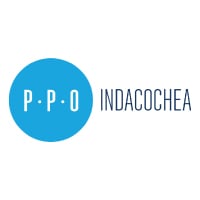

National legal manager | Embotelladoras Bolivianas Unidas (EMBOL)



José Luis Bejarano Frías
National legal manager | Embotelladoras Bolivianas Unidas (EMBOL)
How do you approach managing legal aspects during periods of instability or crises, and how does your legal strategy align with the broader business strategy to ensure the organisation’s resilience?
During periods of crisis and instability, the legal function becomes an essential pillar of organisational resilience. From the Legal Department, we have focused our efforts on two key areas: first, ensuring operational continuity through the review, strengthening, and renegotiation of contracts with strategic suppliers, particularly in contexts of shortages of critical inputs; and second, strengthening compliance programmes and the management of Sensitive Legal Matters, conceived as an early-warning system against legal, reputational, or sustainability risks.
Our strategy is fully aligned with the company’s broader business strategy by prioritising supply chain protection, litigation prevention, and strengthening trust with authorities, business partners, and communities, while ensuring that the company operates in a legitimate, ethical, and sustainable manner.
What are the main cases or transactions that you have been involved in recently?
The complex economic, currency, and fuel supply situation in Bolivia has required the Legal Department’s priority attention. In this context, we have led and supported negotiation and structuring processes of contractual agreements with strategic suppliers, ensuring conditions that guarantee operational continuity and mitigate risks derived from external volatility.
At the same time, we have proactively managed contractual disputes and emerging conflicts, with the aim of preventing escalation to judicial proceedings that could compromise business stability.
What do you see as the major legal challenges for businesses in Bolivia over the next five years, and how are you preparing to address them?
Businesses in Bolivia will face increasing challenges in three key areas: corporate ethics, social legitimacy, and sustainability.
On ethics, legal departments will need to play an active role in Ethics Committees, contributing to the definition, implementation, and oversight of standards that strengthen corporate culture and allow deviations to be addressed and sanctioned with transparency and effectiveness.
Regarding legitimacy, it will be essential to reformulate and strengthen compliance programmes, not only to ensure regulatory adherence but also to reinforce public and governmental trust in corporate conduct.
Finally, in terms of sustainability, the legal department must integrate as a strategic partner of the company’s ESG policies, supporting the design of contractual, regulatory, and governance frameworks that guarantee environmental and social sustainability, as well as long-term business continuity.
In summary, the legal department will evolve from being a mere risk manager to consolidating itself as a true generator of legitimacy and sustainability, both of which are indispensable pillars for the future competitiveness of businesses in Bolivia.